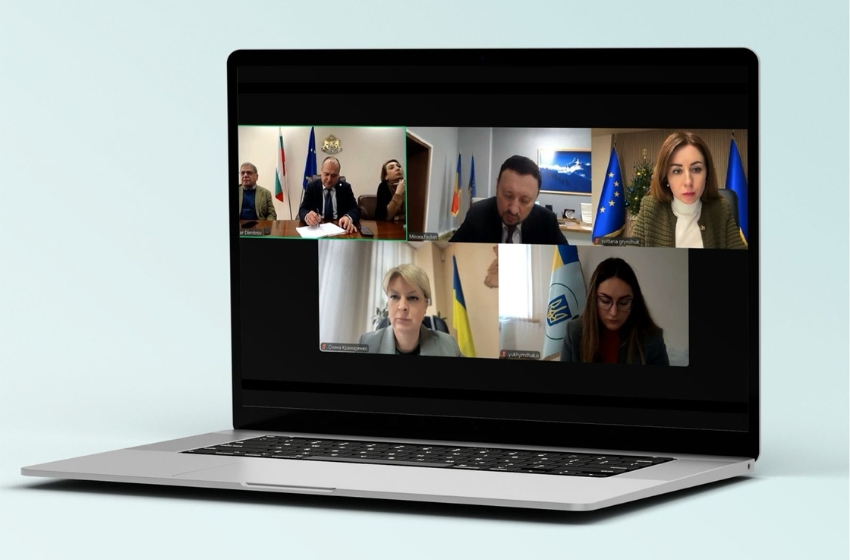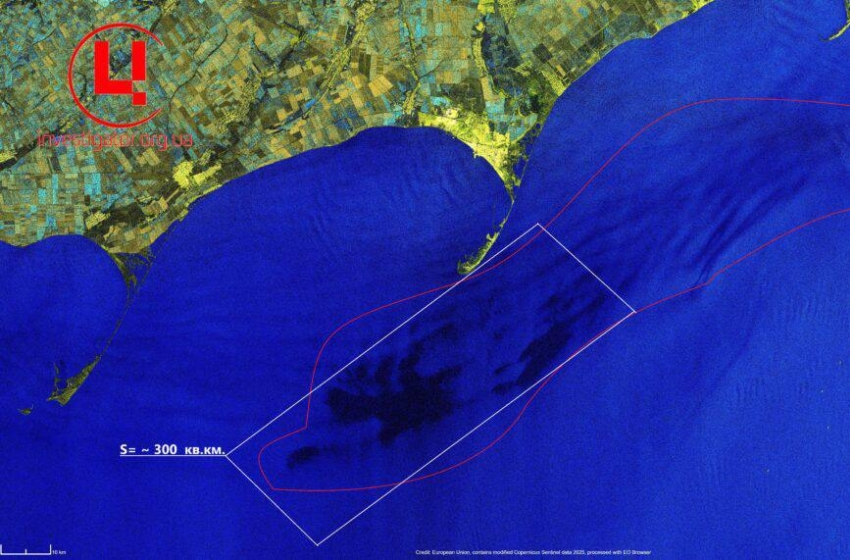Ukraine, Romania, and Bulgaria have agreed at the ministerial level on joint steps for cooperation with international institutions regarding the large-scale environmental disaster in the Black Sea caused by oil pollution.
This was reported by the Minister of Environmental Protection and Natural Resources of Ukraine, Svitlana Hrynchuk, on her Facebook page. She held another online meeting with the Minister of Environment, Waters, and Forests of Romania, Mircea Fechet, and the Acting Minister of Environment and Water of Bulgaria, Petar Dimitrov. According to them, the lack of verified data on the consequences of the Russian tanker accident on December 15, 2024, and the subsequent spread of oil in the Black Sea remains a problem. Access to information about this situation is currently only available through Crimean local media and a limited number of satellite images.
As of today, images show that the oil pollution has reached the city of Yevpatoria. UkrNTSEM continues to monitor the development of the emergency event using available means.
"Colleagues emphasized that our cooperation is not a service to Ukraine but a shared responsibility. The Black Sea unites a number of European countries. Although mathematical models do not show the movement of the oil spill to the west, the consequences of the Russian tankers' accident pose risks for the entire Black Sea. This concerns tens of kilometers of oil film on the water surface deep into the Black Sea, thousands of kilometers of contaminated coastline, thousands of dead birds, and dozens of dolphins, as well as disrupted food chains in ecosystems. According to preliminary estimates by environmental inspectors, the oil spill has caused material damage to the Black Sea ecosystem amounting to more than $14 billion. We also agreed to coordinate joint efforts to limit the entry of Russia's outdated fleet into the Black Sea, which poses potential threats to the marine ecosystem," said Svitlana Hrynchuk.

According to the Minister, Ukraine has already appealed to the relevant secretariats of the UN conventions, UNEP, UNESCO, the European Union, and the International Maritime Organization (IMO). Feedback has been received from the Secretariat of the Black Sea Commission regarding the need to hold an extraordinary meeting to discuss this case. The issue will also be reviewed at the IMO Subcommittee on Prevention of Pollution meeting on January 27 this year.
"We continue our observations, are preparing an appeal to the European Commission, and are awaiting a strong response from the global community. This is not the first similar situation with Russian tankers. Russia ignores international maritime law. Therefore, to ignore this accident now means to allow its repetition in the future," emphasized Svitlana Hrynchuk.




















